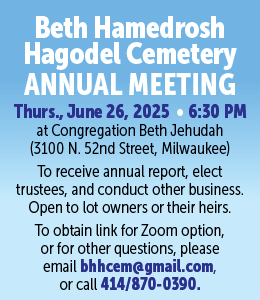Our calendar is set up in such a way that the holiday of Purim reminds us that a month later we will celebrate the holiday of Passover. In the words of the Talmud, “One redemption should be close to another redemption” (Tractate Megillah 6b).
However, they represent almost two opposite ideas.
Passover is the birthday of our nation. We were enslaved both physically and spiritually by the superpower of the day, Egypt.
G-d showed us His infinite love with so many miracles: the ten plagues, the splitting of the sea, the miracles of the desert, the food from heaven, the water from the rock, the climate control, and defense protection by the miraculous clouds that surrounded them.
Seven weeks later, on Shavuot, G-d gave us the ultimate gift — the Torah.
A mountain is symbolic of love. The earth is yearning to rise to heaven.
Our sages say that G-d held a mountain over the Israelites’ heads, which means He showed them so much love that they couldn’t refuse the Torah. They joyfully accepted it.
On the other hand, during the events of Purim, the Jewish people were dispersed among 127 countries. They were unprotected and vulnerable. Their enemies surrounded them.
They faced a threat of total annihilation. There were no obvious miracles.
Yet the Jewish people chose to be Jews. At the Exodus from Egypt, G-d chose the Jewish people. During the holiday of Purim, the Jewish people chose G-d.
Therefore the holiday of Purim precedes Passover.
All of us, after this long and arduous exile, who have so much freedom to choose, have chosen to belong to the Jewish people. We have, in spite of everything, chosen G-d.
We have validated G-d’s choice. That promises us that very soon we will experience the ultimate redemption- the Passover that ends the exile with the reality of “Next year in Jerusalem.”
Rabbi Yoseph Samuels is director of Chabad of Downtown.


